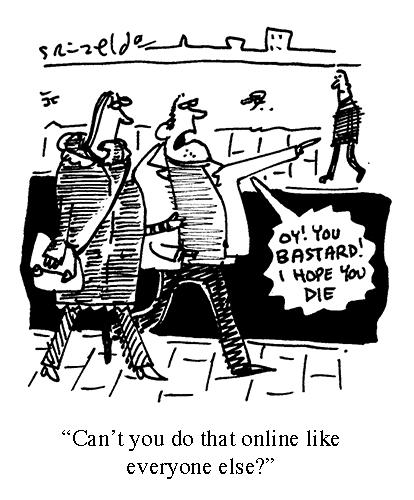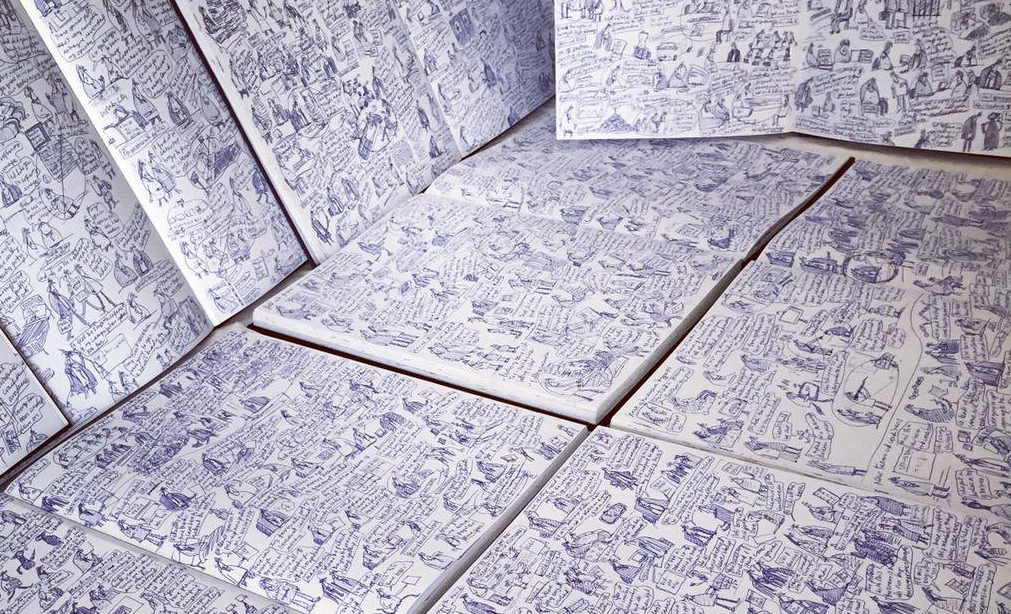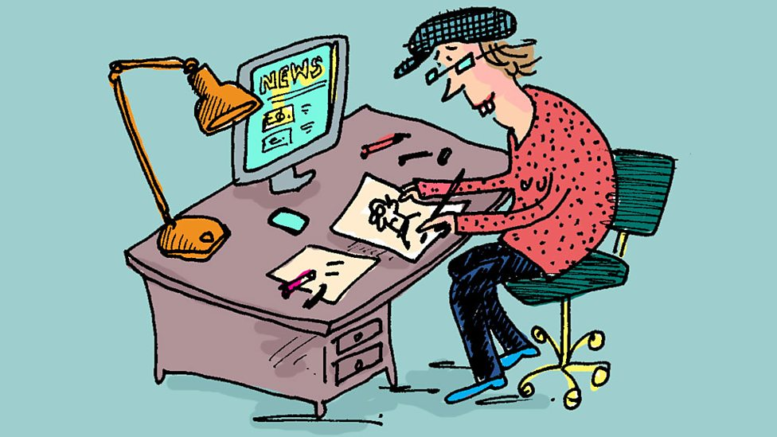“As a child, I wanted to be an actress, novelist, film director, artist or rock star”, Grizelda tells us over the phone. “It didn’t work out.”
Instead, Grizelda went on to become one of the country’s most prolific cartoonists. She has been cartooning for 28 years and is currently published by around ten publications, including The Spectator, The New Statesman and Private Eye.
The signs were there early on. Aged 13, she told everyone to call her Grizelda or ‘Griz’, after deciding it was the sort of name a cartoonist would have. Since then no-one but her family has known her by her real name.
Her cartoons satirise all manner of contemporary issues, from the ravages of social media to celebrity culture, from austerity to Corbynmania. But how would she characterise them?
“Very funny”, she says, laughing down the phone line. “It’s social and political commentary. The last few years it’s narrowed down to just doing gags which, bizarrely, is less stressful because you’re just coming up with jokes.”

At a time when many of us feel overwhelmed by a never-ending barrage of miserable news, what is like to spend your entire working day trying to be funny about it?
“I follow news all the time, I absolutely love it. But only news that can be turned into cartoons. I don’t read about some terrible war, or some terrible train crash. But politics: I absolutely devour it. I’ll be sitting in the bath reading some political tome or memoir and that relaxes me.”
Grizelda seems not to consider herself much of an artist. Calling her cartoons “badly drawn”, she says she much prefers generating jokes to the final stage of neatly drawing them up.

Grizelda has hundreds of these notebooks, which she uses to come up with ideas
“Somebody like Ed McLachlan, who’s in his 80s now, clearly absolutely loves drawing. Even in his roughs, he does these amazing, elaborate drawings but if I could get away with doing pin figures I would. For me, it’s just the idea and expressions on faces.”
Sometimes, though, there are issues which lack a funny side. Last year Grizelda took to Twitter to criticise a new collection of British political cartoons which did not include a single work by a woman.
*boiled blood* pic.twitter.com/pekrwIdZHk
— Grizelda Cartoons (@GrizeldaG) October 30, 2017
She does not believe there is a widespread problem of sexism in British cartooning – but then why are there still fewer women cartooning than men?
“Press publications only have one cartoonist per newspaper, and most of them have been there donkey’s years so there aren’t the opportunities. And I think it’s changing a lot, just like with stand-up comics. For decades it’s always been blokes, and it’s only really recently that it’s become so much more balanced.”
She adds: “Quite a few cartoonists don’t sign their name in a way that makes it obvious they’re a woman. There are female cartoonists who just sign their surnames, so people will think they’re a man.”
Even with a name like Grizelda, she still receives emails which assume she’s a man, she says.

It is perhaps surprising that after nearly 30 years of poking fun at British culture and politics, Grizelda does not think of herself as a satirist.
“I suppose there are satiric elements within the cartoons but I only think of satirists as someone like Richard Ingrams, or Peter Cook or Ian Hislop. And I see myself as being a lowly cartoonist, not some towering figure who’s trying to bring down the establishment.”
Though she distances herself from these Private Eye stalwarts, her own relationship with the magazine dates all the way back to when, aged about 16, she had one of her first cartoons published in it.
Grizelda says the Eye is still the best place to be published as a cartoonist. “It has the most [cartoons] and they don’t restrict who they take work from. If the joke’s good it’ll go in.”
She still feels included in the Private Eye world. “They have some fantastic parties which I make sure I don’t miss.”

Grizelda thinks the future is rosy for cartooning. “It’ll grow because of the internet, because there are so many opportunities to publish your own work”, she says.
“I don’t know how much money there’ll be in it but in my lifetime there’s never been much money in it anyway. It’s not why you do it.”



